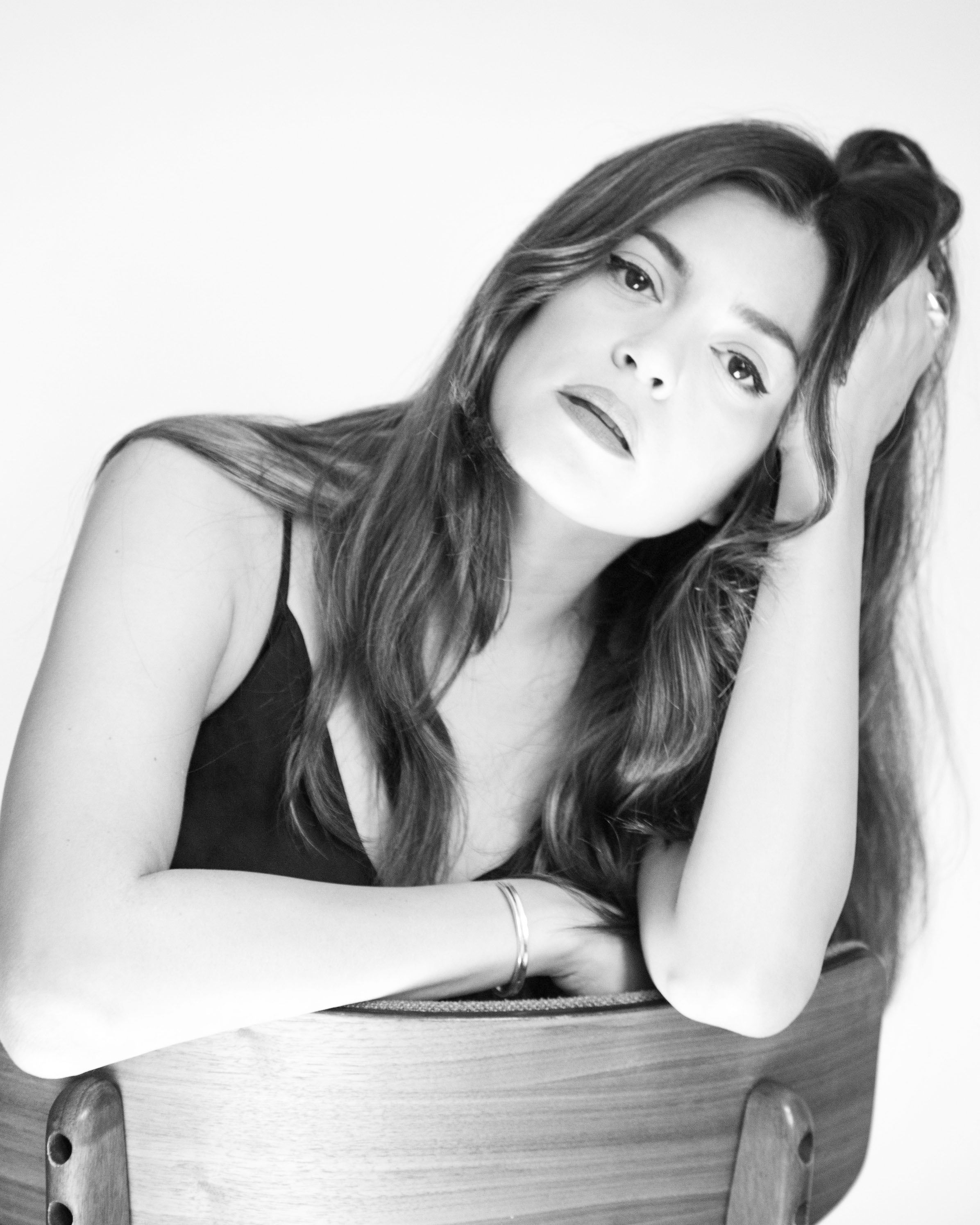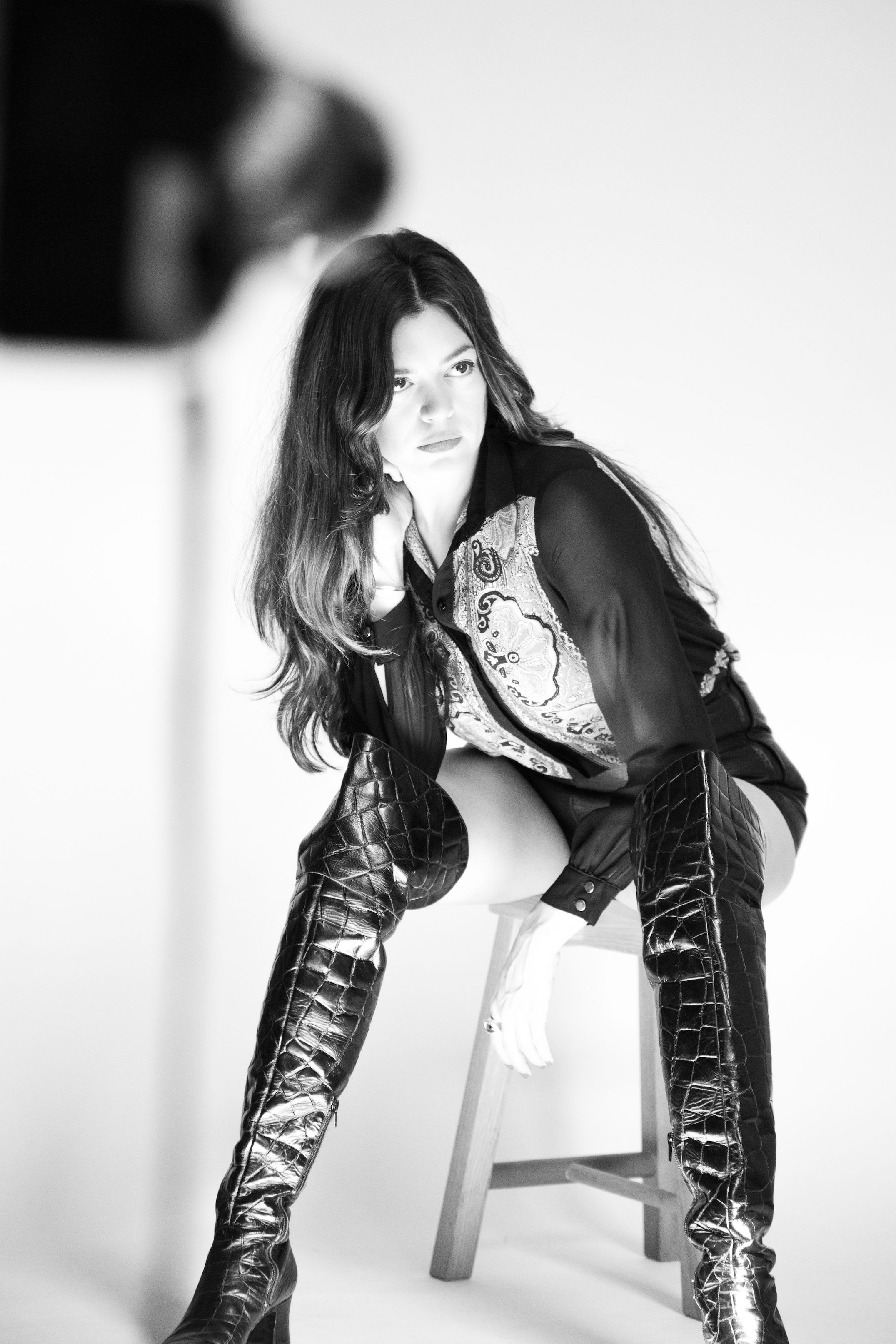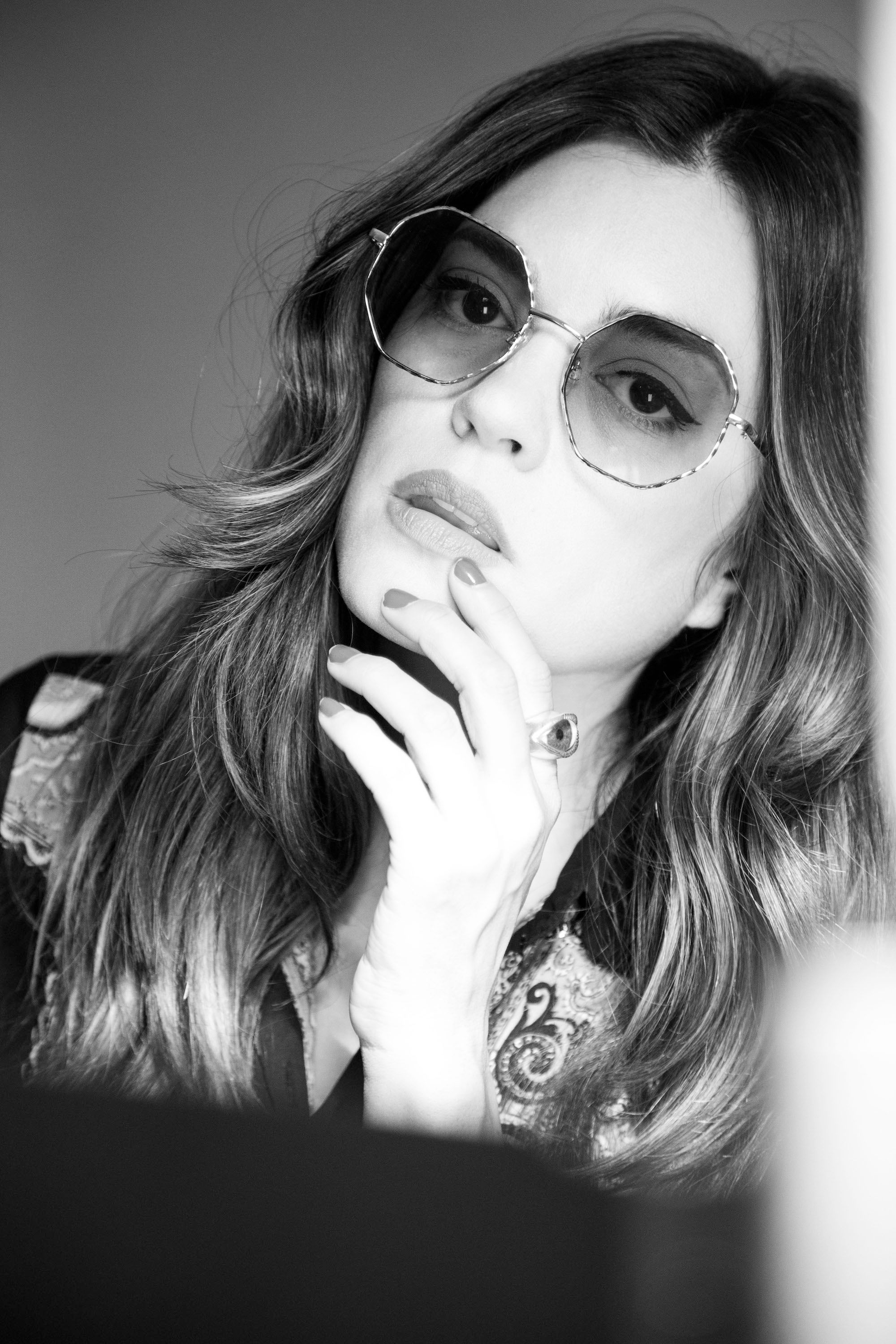
The sublime retro chanteuse Iraina Mancini is a singer-songwriter whose star has been in the ascendent since the mid-pandemic release of her first single “Shotgun” - a delectable slice of francophile summer-of-love-inspired pop that has been championed by the likes of Jo Wiley and Lauren Laverne, becoming a firm favourite on the BBC Radio 6 playlist. Effortlessly channelling the style of the yé-yé’ girls of the 60s, it's fair to say that Mancini has a somewhat encyclopaedic knowledge of every element of her craft, having DJ’d rare northern soul and funk sets at festivals all over the world as one-half of the disc-spinning Smoking Guns, and via hosting her own weekly radio show on Soho Radio. And she is a musician with strong pedigree, being the daughter of the singer, dancer and composer Warren Peace, who worked extensively with the legendary David Bowie throughout the 70s, among many others. Culture Collective caught up with the soul songstress to talk about the new single from her forthcoming debut album "Undo The Blue", and to get the lowdown on manifesting your dreams as reality.
What set you out on the path to be a musician?
I grew up in a very creative household, my mother was a photographer and my father was a music producer, so I was surrounded by the importance of expressing yourself through art as a kid, whether it was watching my mum develop film in dark rooms or sitting in on music sessions at my dad’s studio. My dad used to sing with David Bowie back in the day, from Aladdin Sane through to Station to Station, so I used to listen to old tapes and watch videos of him on stage – all of that had a huge impact on my life. My love of singing started at a super young age – I used to do vocals for dad in the studio when he had an advert or film to write for, so, even at the age of four, I was singing on a song he wrote for an Italian clothing brand, hilarious! I also had a music teacher at school that really believed in me. I used to write songs, and he used to push me to sing them in church in front of the whole school. When people started to ask for copies of the songs afterwards, I knew that perhaps I was okay!
Why is musical expression important to you?
If I have gone though a bad patch, I tend to need a way to vent those feelings, and emotion and tension can be expressed so beautifully through melodies and harmonies. I have always had a crazy love affair with music, though. There have been times when I have had long breaks from writing, then, all of a sudden I will get a creative burst and won’t be able to stop. It was actually during the pandemic when my music seemed to take off the most, which was interesting. I really had time to focus on it. I released my first single ‘Shotgun’, and that did really well – it got picked up by lot of radio stations and was playlisted on BBC Radio 6, so that was kind of when I thought, oh, okay, hold on, this is kind of working. Then I really buckled down, and, as with all things in life, when you really focus on something, it kind of works out.

How would you describe your music?
I would describe it as psychedelic pop. I am very inspired by the 60s and French singers, I love the style of that era. I discovered the album Melody Nelson by Serge Gainsbourg in my 20s and I just fell absolutely in love. I love all the music Serge made. I love the grooves. I love all the girls who he picked to be on the records. I mean, probably chosen because he liked pretty women as well, right? But I don't know – that's one of those things, isn't it? (Laughs) I mean, he was obviously a bit of a player, let's say, but I'm not particularly interested in that side of him, more just the music he made. I think he was a bit of a genius. Nowadays, of course, it's as much about the personality and the way that they choose to live, as well as their art, which can cause problems. I think pre-social media you could actually have some mystique.
What are the key themes on the album?
A lot of it's about a fresh start and letting go of stuff. I had a big relationship end, and I went through a period of self-reflection, and started kind of questioning what was going on inside? I kind of started again, and built myself up again – I did so much work on myself. I really felt like a brand new person afterwards. So, a lot of my songs like “Undo The Blue”, which, which is my latest single, is all about that thing of starting again and undoing the negative. I do find it it's really odd when I write, though. It's like kind of a button I push and it just all comes out – sometimes I don’t know what I'm going to write about at all, I'll just write, and then I'll read the page and it kind of tells me what I'm feeling, and I'll go, oh yeah, that is what's going on in my head.

What has been the best thing to happen in regard to the music so far?
The best thing have been the champions I've had on the radio – people I've always looked up to like Lauren Laverne, Joe Wiley and Steve Lamacq. I mean, I would only dream of those kind of people to be talking about me and pushing my music when I was younger. And it feels like validation, because I have been writing and gigging for a very long time. To be honest, when I turned 30, I almost thought that I would have to give up. I suppose I thought that as a female, no one's going to take me seriously – they'll think I'm too old, and that's just not true. There's a huge amount of amazing female singer songwriters who are older. I've always loved the likes of Anna Calvi, Jane Weaver and St. Vincent – women who have amazing careers as older females. And I don't have dreams of being a superstar. I just want to be able to do music forever, and my make living out of it – I'd be super happy with that.
All portraits courtesy of Iraina Mancini, shot by Kirk Truman
Find out more about Iraina Mancini here